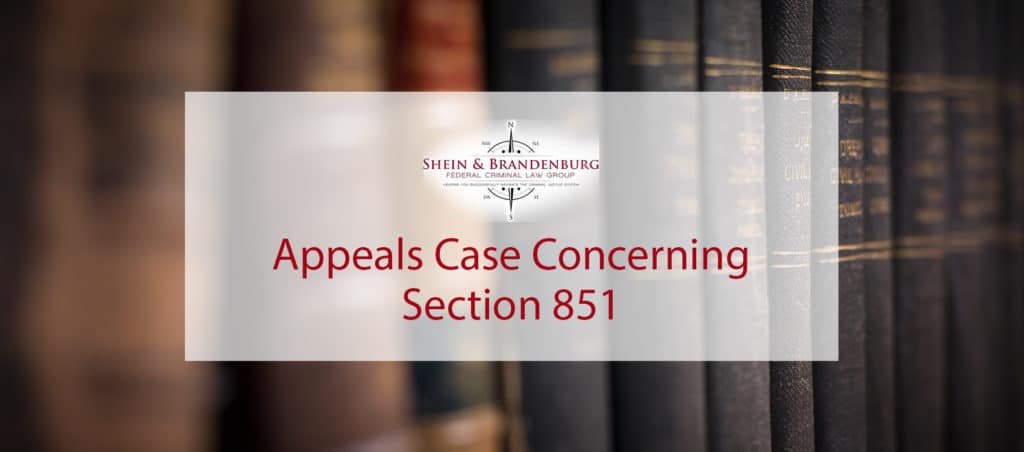Section 851 of the Controlled Substances Act (or, 21 U.S.C. 851) authorizes federal prosecutors to use a defendant’s prior felony drug conviction to subject a defendant to an increased penalty. This law is commonly used in appeals. Recently, the Ninth Circuit in United States v. Ocampo-Estrada vacated a 20-year mandatory minimum sentence that was imposed as the result of 21 USC 851 because this did not constitute a “Felony Drug Offense.”
How the Case Arose
The defendant in question was convicted of conspiracy to distribute methamphetamine. Prior to trial, the government filed an 851 enhancement notice based on the defendant’s prior felony conviction for possession of a controlled substance.
The government argued that this prior conviction was a “felony drug offense,” which includes offenses that are punishable by imprisonment of more than one year under any law of the United States or of a state or foreign country that prohibits or restricts conduct relating to narcotic drugs, marijuana, anabolic steroids, or depressants. The government, however, failed to present records documenting exactly which controlled substances the defendant pled to.
The defendant did not challenge the sentence on the basis that his prior conviction did not qualify as a felony drug offense. As a result, the defendant was sentenced to 20 years in prison.
The Appellate Court’s Decision
The appellate court determined that the defendant did not waive his challenge to the prior offense. The Appellate Court indicated that it would examine the elements of the statute that the defendant was convicted under instead of questioning the underlying facts. The parties agreed that the California statute that outlined possession of a controlled substance was too broad and that the issue was whether the California Healthy and Safe Code section 11378 was divisible. The appellate court held that this law was divisible. Because the statute was found to be divisible, the Appellate Court examined a “limited class of documents” to determine if the prior conviction was a qualifying offense. No government documents, however, show which controlled substance was involved in the defendant’s prior act. As a result, the court found that the defendant’s prior conviction was not a felony drug offense under 21 USC 802(44) because the “limited class of documents” did not demonstrate that the prior conviction was related to anabolic steroids, depressants, marijuana, narcotic drugs, or stimulant substances.
The government tried to argue that the defendant admitted the prior case involved meth. However, because this objection was made during the defendant’s federal criminal case instead of from the prior case, the Ninth Circuit held that the statement could not be used to prove the prior conviction was a felony drug offense.
Strong Legal Representation for Your Appeal
If you are interested in appealing a sentence made due to Section 851 or any other law, it is critical to obtain the assistance of strong legal representation. Contact the Federal Criminal Law Center today to discuss how our legal counsel can help your case.


